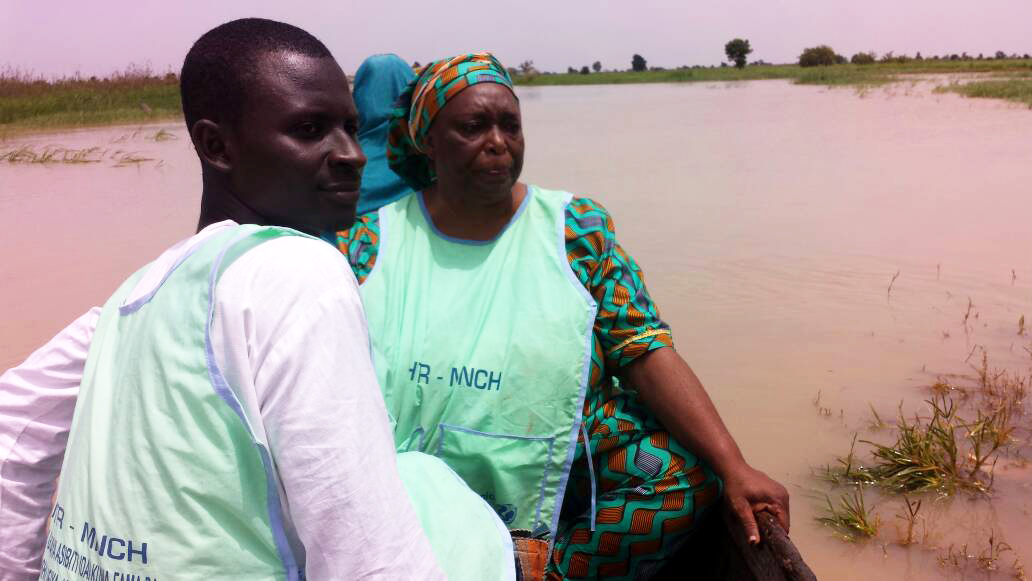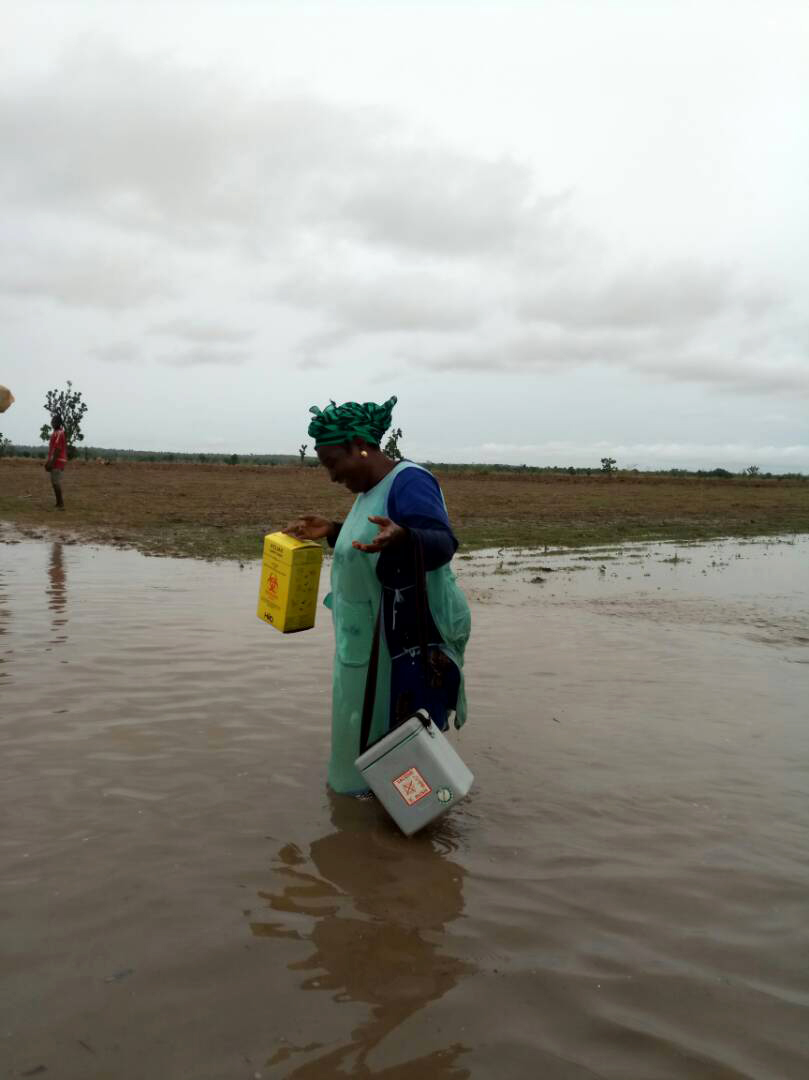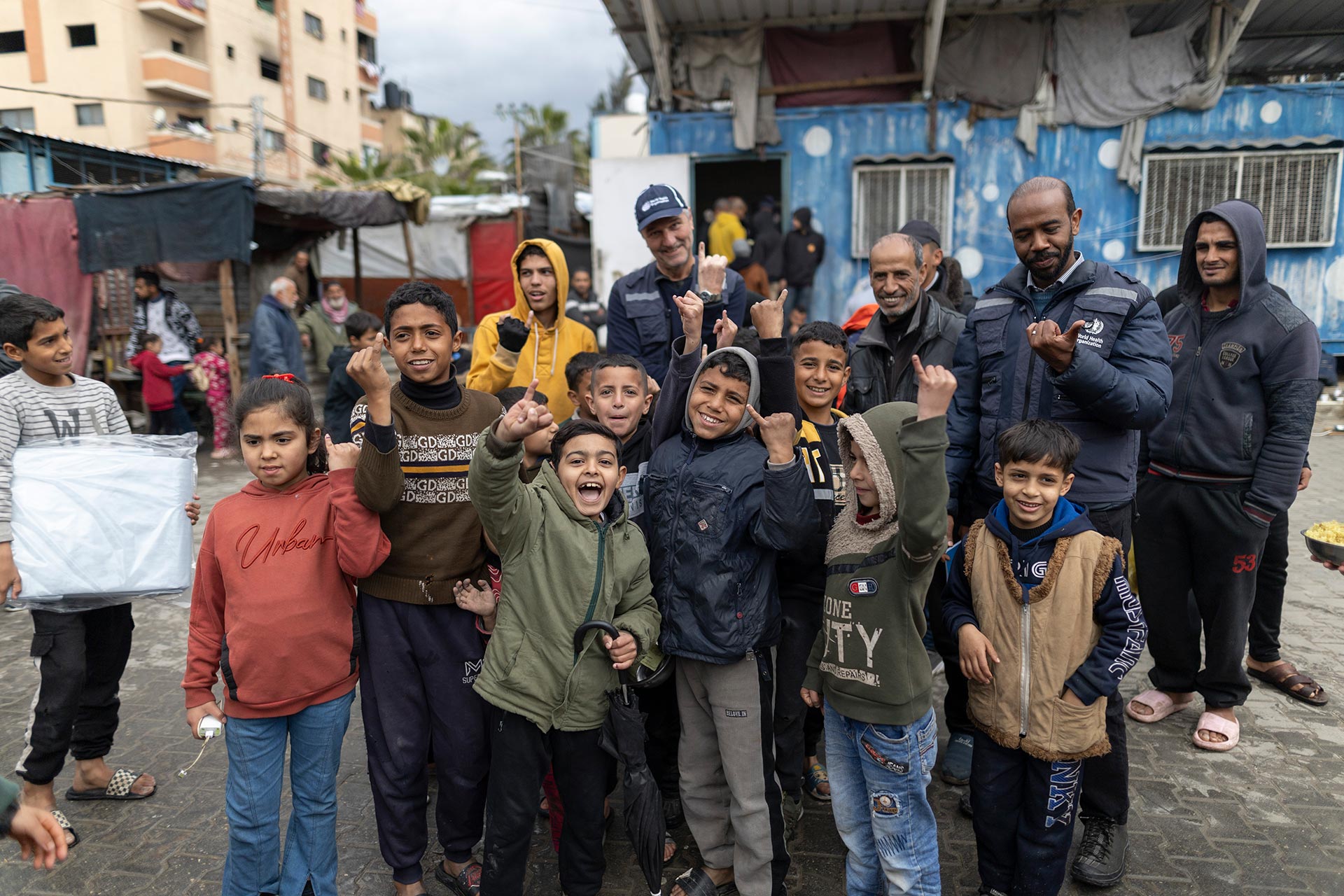
Three-year-old Ibrahim wouldn’t stop crying. Suffering from ringworm, a fungal infection, his leg had become badly infected. Left untreated, he risked developing fever and scarring wounds.
For Ali Musa, his father, it was hard to know where to turn for help. Where he lives, in the nomadic community of Daurawa Shazagi in the Nigerian state of Jigawa, there is little access to professional medical treatment.
From his home, it would take Ali a full day to trek to the nearest primary health centre. He does not recall the last time anyone in his community made this “practically unthinkable” journey.
Reaching all children with vaccines
“But when I heard in the market that a medical team was coming to us to treat sick people, especially women and children, I went with the hope to at least get him some relief from the pain,” Ali recalls.
There, Ali met members of the mobile health teams supported by the UNICEF Hard-to-Reach (HTR) project – funded by the Government of Canada’s Department of Foreign Affairs, Trade and Development. These teams are helping to ensure that children receive polio vaccinations, whilst also providing basic health services – including medications to fight infections like ringworm – in hard-to-reach areas of Nigeria.

The teams vaccinate against measles, meningitis and other diseases, and provide vitamin A supplements and deworming tablets for children. They also carry out health promotion activities, teaching communities about important practices such as exclusive breastfeeding. During each clinic, members of the HTR team give two drops of polio vaccine to every child, ensuring that all are protected from the virus.
At the end of their visit, the team pack up the clinic, and travel home, taking hours to cross difficult terrain by foot, boat and motorbike.
2390 children vaccinated
The HTR project aims to reduce the immunity gap among children living in Nigeria. Since 2016, when cases of wild poliovirus last were detected in the country, determination and commitment have helped to strengthen eradication efforts, but many states still face an uphill task to increase historically low routine immunization rates. This is especially the case in rural areas, where there are few services, and communities have to travel far to the nearest health clinic.
So far in 2018, the project has reached thousands of previously unvaccinated children with the life-saving polio vaccine, including 2390 children in Ibrahim’s state, Jigawa.
“Why should I let anything stop me?”
Salamatu Kabir, who leads a HTR team assigned to take immunization and basic health care services across Jigawa, says “I look at it this way. If people from outside can come all the way to bring the hard-to-reach project to my country, why should I let anything stop me from delivering it to my own people who are most in need?”
A retired health worker, she says that she doesn’t think twice about the many hurdles that she will have to overcome to reach children in communities like Ali and Ibrahim’s.
Far more of a concern is planning meals for her four children whilst she is away, and packing all the equipment she will need for the journey. Experience over the years has taught her what items to add to her bag besides vaccines. She always carries an umbrella, an extra pair of clothes, insect repellant and depending on the season, either an additional pair of sandals or, most often, rain boots.
Salamatu asserts that for the team members, “visiting the settlements to administer health care is something we have come to love and look forward to”.
When the team finally does arrive at their destination they are greeted by an expectant community. Salamatu is motivated by the direct impact her work has on the lives of others.
Little Ibrahim is one of those to benefit. After treatment from the team, his condition improved quickly. His father Ali has since become a volunteer for the HTR project, and an avid advocate within his community for medical care.
“I will do my best to ensure every child in my village benefits from the help that is coming from far,” he says.



